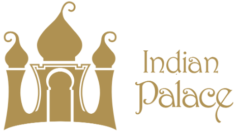Building upon the insightful exploration in How Mythology Explains Modern Symbols Like Gates of Olympus, it becomes evident that mythological symbols are not merely decorative or cultural artifacts. They hold profound psychological significance, acting as gateways to understanding our subconscious mind, collective fears, aspirations, and identity. By delving deeper into the psychological power of these symbols, we can appreciate how they influence individual behavior and societal narratives, often beneath our conscious awareness.
Table of Contents:
- The Archetypal Foundations of Mythological Symbols and Their Psychological Significance
- Cultural Variations and Universal Psychological Themes in Mythological Symbols
- The Cognitive and Emotional Processes Triggered by Mythological Symbols
- Mythological Symbols in Contemporary Media and Consumer Culture
- The Transformative Power of Mythological Symbols in Personal Psychology
- The Ethical and Social Dimensions of Mythological Symbols’ Psychological Influence
- Bridging Back to Modern Symbols: From Mythology to Contemporary Psychological Significance
The Archetypal Foundations of Mythological Symbols and Their Psychological Significance
A central concept in understanding the psychological power of mythological symbols is Carl Jung’s theory of archetypes. Jung proposed that certain universal symbols and motifs are embedded in the collective unconscious—a shared layer of the psyche common to all humans. These archetypes, such as the Hero, the Shadow, or the Anima/Animus, manifest through mythological imagery and influence our perceptions, dreams, and behaviors.
For instance, the figure of Zeus in Greek mythology embodies the archetype of the Sovereign or King, symbolizing authority, power, and divine order. When individuals or societies resonate with this archetype, it can evoke feelings of stability or, conversely, fear of tyranny. These responses are deeply rooted in our subconscious, shaping our worldview and personal identity.
Cultural Variations and Universal Psychological Themes in Mythological Symbols
While specific mythological symbols vary across cultures—such as the Norse Thor’s hammer or the Hindu Om—the underlying psychological themes often reveal remarkable similarities. Cross-cultural studies show that symbols representing power, fertility, chaos, or protection resonate universally because they address fundamental human concerns.
For example, the concept of a ‘gateway’ or ‘portal’ appears in many cultures—such as the gates of Olympus, the Chinese Dragon Gate, or the Norse Bifrost Bridge—serving as thresholds between worlds. These shared motifs highlight common psychological patterns: the desire for transformation, the fear of the unknown, and the hope for transcendence.
“Shared symbols across cultures suggest a collective subconscious that speaks to universal human experiences, transcending individual differences.”
The Cognitive and Emotional Processes Triggered by Mythological Symbols
Mythological symbols evoke strong emotional responses because they tap into our evolutionary psychology. For example, images of gods wielding lightning or wielding thunder, like Zeus or Thor, activate primal associations with power and control, eliciting feelings of awe or fear.
These symbols also activate memories and personal narratives stored in the subconscious, reinforcing our sense of identity. When someone encounters a symbol like the serpent—often associated with transformation and danger—it can evoke complex feelings rooted in ancient fears and hopes.
Research in neuropsychology indicates that such imagery can stimulate the amygdala and other emotion-related brain regions, leading to subconscious reactions that influence our attitudes and decisions without our conscious awareness.
Mythological Symbols in Contemporary Media and Consumer Culture
Modern branding and entertainment frequently leverage mythological symbols to evoke psychological responses. For example, companies use images of powerful mythic figures like the Greek gods or Norse warriors to associate their brands with strength, heroism, or exclusivity.
Films such as Marvel’s Thor or the portrayal of gods in video games tap into deep-seated archetypes, engaging audiences’ subconscious desire for adventure and transcendence. Similarly, luxury brands often adopt symbols like the lion or the eagle, which historically represent dominance and vision, to reinforce their identity.
“Harnessing mythological symbols in marketing creates a psychological shortcut—instantly resonating with collective unconscious themes that foster brand loyalty.”
The Transformative Power of Mythological Symbols in Personal Psychology
On an individual level, mythological symbols serve as powerful tools for self-reflection and healing. They provide archetypal templates that help individuals navigate personal crises, growth, and self-discovery.
Therapists often incorporate mythological imagery into psychotherapy to facilitate insight. For instance, visualizing oneself as a hero overcoming challenges can activate inner resources and foster resilience. Similarly, mindfulness practices that focus on symbolic imagery—like the lotus or the labyrinth—assist individuals in connecting with deeper aspects of their psyche.
This transformative process underscores the importance of mythological symbols as inner tools for achieving psychological integration and healing.
The Ethical and Social Dimensions of Mythological Symbols’ Psychological Influence
While these symbols hold immense potential for positive growth, they also pose risks of manipulation. Political ideologies, propaganda, or commercial interests can exploit mythological imagery to influence perceptions and behaviors in subtle yet powerful ways.
An awareness of these dynamics is essential for fostering responsible use of mythological symbols—whether in education, media, or societal discourse. Promoting critical thinking about symbolic messages helps prevent their misuse and encourages a more conscious engagement with cultural narratives.
“Understanding the psychological power of mythological symbols empowers us to recognize their influence and use them ethically in shaping collective and personal identities.”
Bridging Back to Modern Symbols: From Mythology to Contemporary Psychological Significance
By examining the deep-seated psychological foundations of mythological symbols, we can better appreciate modern icons like the Gates of Olympus. These symbols are not arbitrary; they are rooted in archetypal motifs that resonate across cultures and time, serving as mental gateways to understanding our collective and individual psyche.
For example, the Gates of Olympus symbolize a threshold between the mortal world and divine or transcendent realms, embodying archetypes of transition, power, and transformation. Recognizing these associations enriches our engagement with such symbols, transforming them from mere visual motifs into meaningful psychological tools.
In essence, understanding the psychological underpinnings of mythological symbols enhances our ability to interpret and utilize them consciously, fostering personal growth and societal harmony.
